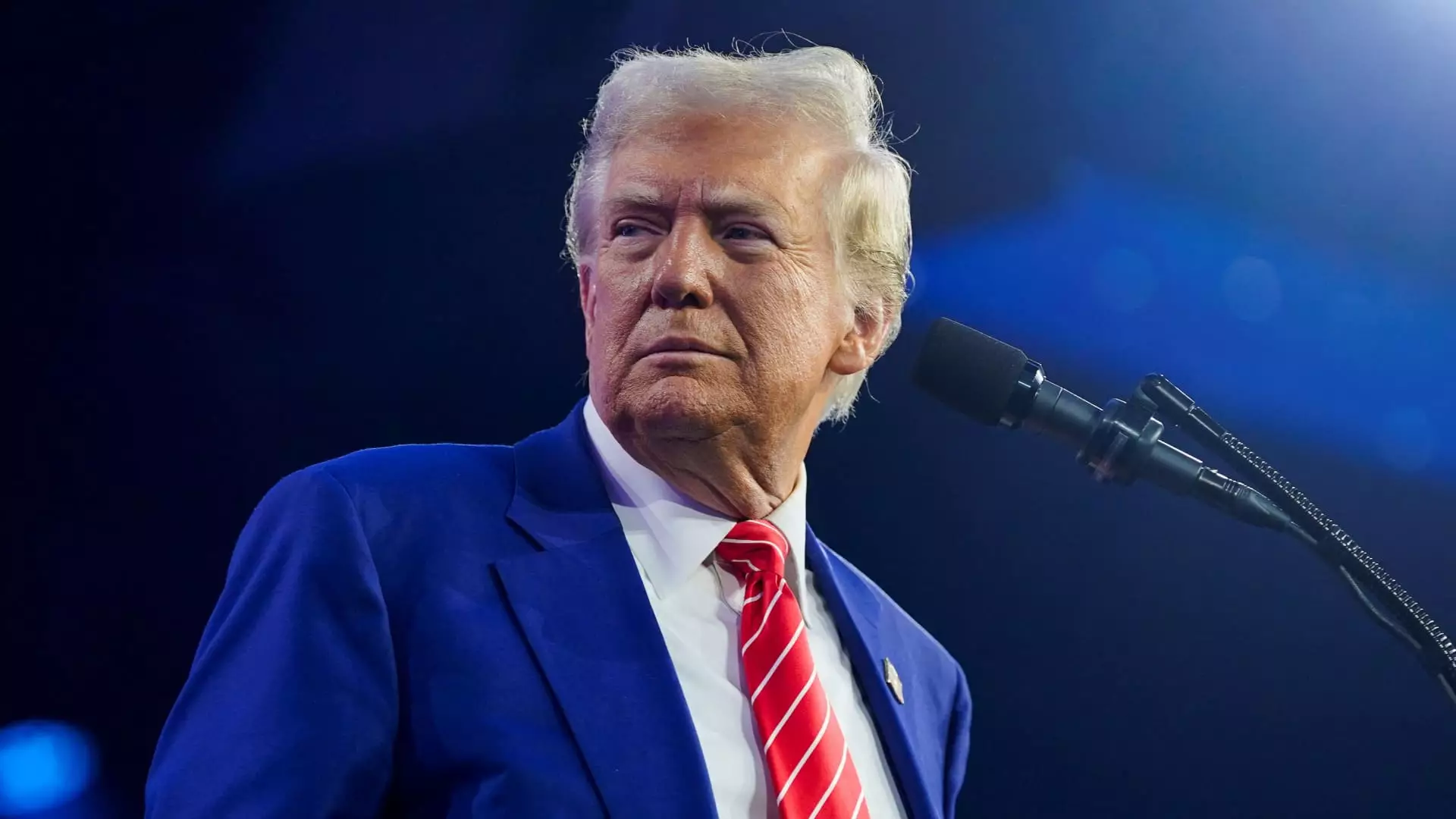On Christmas Day, President-elect Donald Trump took to his Truth Social platform to share a series of provocative posts that drew international attention. His messages targeted not just the holiday itself, but also Canada, Greenland, and the Panama Canal. In a manner characterized by bravado and a sense of entitlement, Trump’s remarks painted a picture of American dominance and control, raising eyebrows and questions about the implications of such declarations.
Trump’s posts began with an unusual holiday greeting that included a mention of “the wonderful soldiers of China, who are lovingly, but illegally, operating the Panama Canal.” This particular phrase heralded a contentious claim regarding Chinese involvement in the canal, linking it to a historical context of American sacrifice during its construction. Trump’s rhetoric suggested a desire to reclaim what he views as rightful American authority over the canal—a key shipping conduit that the United States relinquished control over to Panama in 1999 after a long historical commitment to its governance.
By implying that the U.S. could reassert control over the Panama Canal, Trump did not merely engage in nostalgic rhetoric; he hinted at potential shifts in international relations and raised questions about U.S. strategies moving forward—especially in light of existing agreements and the sensitivities involved in diplomatic negotiations.
In an equally startling twist, Trump suggested the annexation of Canada, which he referred to derogatorily as a ‘governor’ under the leadership of Prime Minister Justin Trudeau. This idea of incorporating Canada as the 51st state seemed to stem from a blend of economic and military considerations. He claimed that Canada would benefit from a newly configured tax system and would be afforded unparalleled military protection, framing the proposal as advantageous rather than an infringement on Canada’s sovereignty.
Such assertions not only provoke discussion about national boundaries but also reflect a broader question of what American nationalism means in the context of international diplomacy. The audacity of suggesting annexation brings forth historical precedents, akin to past colonial attitudes that sought to expand territories under the guise of ‘protection’ or economic benefits.
Trump’s comments toward Greenland brought a familiar echo from his prior administration, during which he famously attempted to purchase the territory. His remarks this Christmas suggested an ongoing interest in Greenland, emphasizing its significance for national security. This raises concerns about the geopolitical implications of such desires. Greenland’s political situation is linked to Denmark, and Trump’s vocal interest underscores a complex interaction between a desire for territorial expansion and the nuances of international law and relationships.
By discussing Greenland in palliative terms—proclaiming that its people want the U.S. presence—Trump navigated a unique rhetorical pathway that sought to frame American interests as aligned with the desires of Greenland’s inhabitants. However, this perspective glosses over the significant autonomy that Greenland seeks as part of its relationship with Denmark.
Throughout his posts, Trump did not shy away from critiquing his political rivals, particularly current President Joe Biden. He characterized Biden as a “man who has absolutely no idea what he is doing,” continuing his trend of disparaging political commentary aimed at undermining the authority of others. Additional jabs aimed at the “radical left lunatics” illustrated an ongoing battle within the U.S. political landscape and further solidified his base’s commitment to his leadership narrative.
Trump’s aggressive tone and controversial proposals serve not only to rally his supporters but also to polarize opinions across the political divide. By invoking national pride and military might, Trump maneuvers into territory that could embolden nationalist sentiments, while simultaneously igniting fears regarding the implications of such power play.
As the reflections on his Christmas Day messages unfold, it is evident that Trump’s recent posts serve as a continuation of his bold, often inflammatory rhetoric that seeks to level critiques against global entities while asserting a vision of a dominant American presence. His blend of holiday cheer with calls for territorial expansion and political bravado not only highlights his unapologetic approach to leadership but also raises fundamental questions about the future trajectory of U.S. foreign policy under his administration. The world watches as the implications of his statements ripple through international relations, revealing the intricate dance between nationalism, diplomacy, and political posturing in an ever-evolving geopolitical landscape.


Leave a Reply